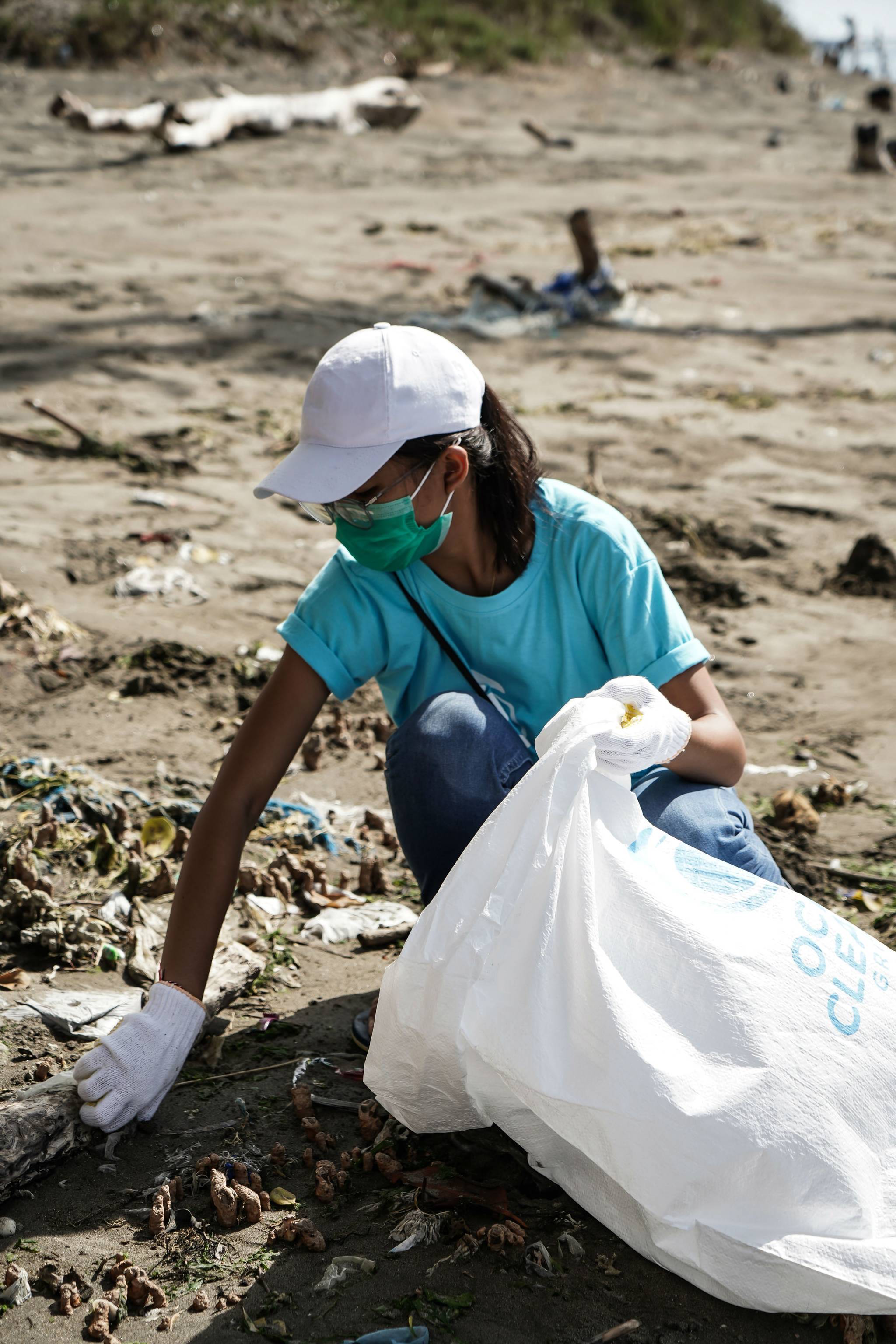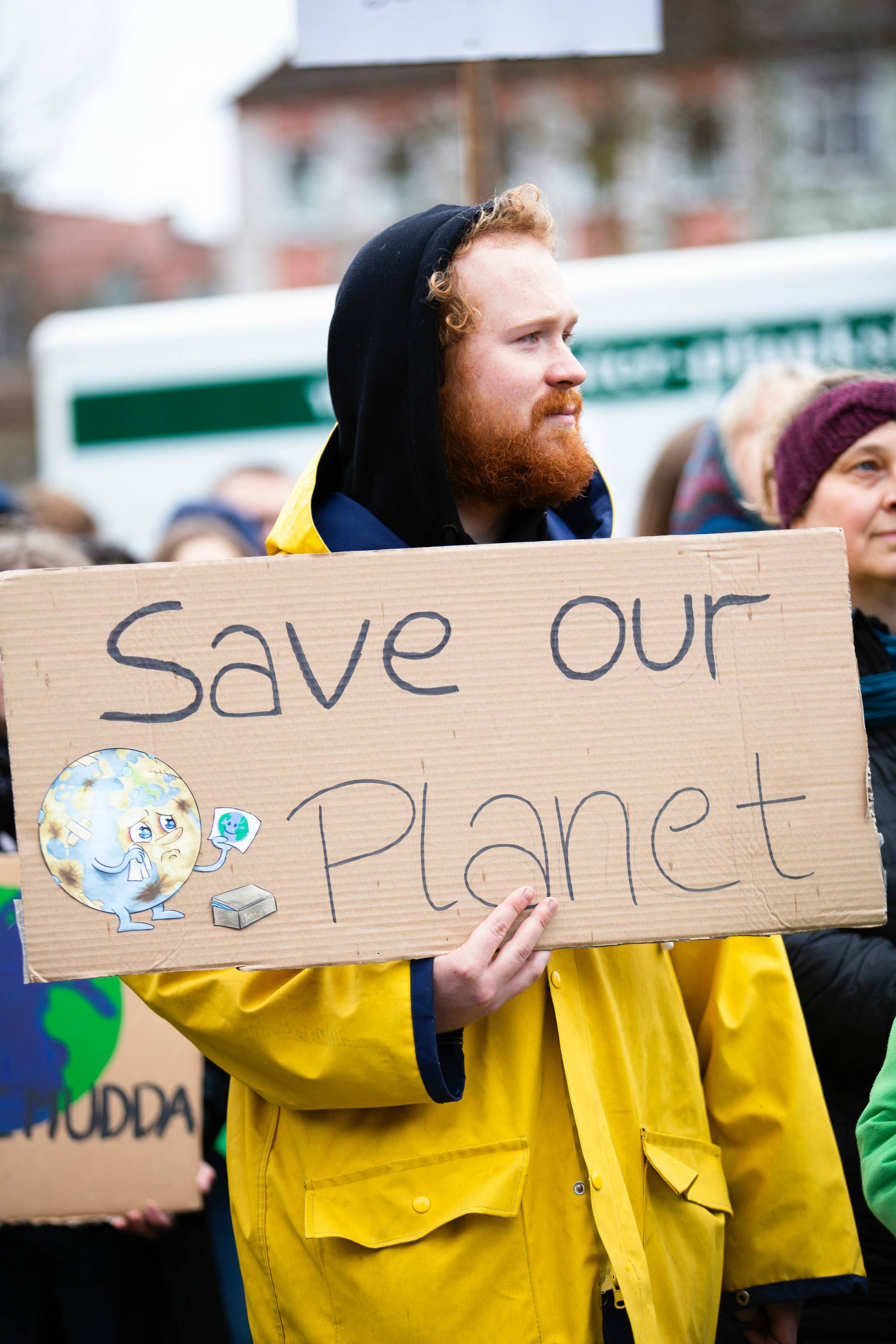
Why has the pandemic made people more appreciative of nature? What stands in the way of people carrying out their eco intentions? And how is tech powering sustainable actions? Canvas8 breaks down the behaviours making waves in the sustainability space - and the brands and organisations facilitating them.
The theme of this year’s Earth Day is ‘Restore Our Earth’ – and funnily enough, the pandemic has inspired many people to want to do just that.
When people across the world were instructed to stay indoors and limit their contact with the outside world, many developed a newfound appreciation for the outdoors. Some went hiking, fishing, or did gardening to find solace in socially distanced activities. At home, many nurtured house plants and enjoyed seeing clearer skies and animals that had started to explore the quieter streets.
One unexpected outcome of the pandemic is that people feel an enhanced sense of responsibility towards the environment. As more people seek to nurture the world around them, they’re also looking to brands to lend a helping hand. Here are a few that have heard the call:
Apps making eco-choices easier
Evocco & Creed
As people increasingly regard climate change as an emergency, they're eager to embrace lifestyle changes that reduce their impact on the environment. But this can be hard because of confusing terminology – for example, in Britain, 47% of people have heard the term ‘carbon neutrality’ but don’t understand what it means. A lack of transparency around product labels also makes people easy targets for brands dabbling in greenwashing.
In light of this, 61% of people are using apps to help them make sustainable buying choices. In this space, Irish app Evocco empowers users to calculate the carbon footprint of their shopping lists, targeting the 49% of people in Ireland who say that information around how to reduce their impact is ‘confusing and unclear’. Similarly, the Creed app operates at the intersection of financial management and emissions tracking, letting people see where their expenditure is having the biggest impact on the environment.
Circular business models
Ace of Air & Nike
As people try to minimise waste, they’re embracing brands that take a circular approach. In fashion, this is manifesting in a heightened interest in sharing clothes, alongside reselling, repairing, and thrifting. And when it comes to beauty, people are concerned about how to offset packaging waste. Ace of Air, for example, has responded by adopting a borrowing approach, encouraging consumers to return used packaging to be reused.
By taking on the responsibility themselves, Ace of Air is appeasing the 62% of Americans who worry that a lack of knowledge is causing them to recycle incorrectly. It’s also likely appealing to the 88% of people in the UK and US who believe that companies should be helping them make a difference.
Nike is another brand exploring circular business models: when publications challenged the sustainability of sneaker drop culture, Nike introduced Nike Refurbishment – an initiative that oversees the refurbishment and resale of returned sneakers at a lower price.
Innovations in material
Prota Fiori & Post Carbon Lab
Vegan leather may solve the animal cruelty problem in fashion, but critics say it still contributes to the plastic waste issue, posing a problem for eco-conscious fashion fans.
To appeal to the 67% of Britons and Germans who consider the use of sustainable materials to be an important purchasing factor, brands are experimenting with innovative materials that don’t skimp on style or quality. Prota Fiori’s fruit skin shoes, for instance, are made in partnership with wineries, with an emphasis Italian craftsmanship.
And as people continue to scrutinise the industry’s carbon footprint, the future of fashion could be alive. At Paris Fashion Week 2021, three French brands debuted their creation: living, carbon-negative clothes made from algae. The garments require daily sprays of water – more care than typical clothes, but considering that 57% of people in Germany and the UK have made significant lifestyle changes to reduce their environmental impact, it’s a small sacrifice.
Communities fighting for change
The Solutions Project & #dumpsterbabes
In 2020 alone, Americans endured 22 different billion-dollar climate disasters, and the majority (62%) say that climate change is affecting their local community – which is perhaps why they’re eager to join the climate conversation.
Tired of waiting for structural change from the powers that be, a number of communities and grassroots organisations are taking it into their own hands. The Solutions Project, for example, seeks to accelerate the transition to 100% renewable energy through community-driven solutions. It focuses on amplifying the voices of Black and Indigenous communities that are disproportionately impacted by climate issues. In the UK, the Climate Reframe project was created to add more diverse perspectives to the climate conversation.
Social media collectives are also allowing people to band together across borders in the name of a cause. One example is the #dumpsterbabes movement on TikTok, which is working to destigmatise dumpster-diving in order to combat corporate waste and encourage people to break away from hyperconsumerism.
Precious Osoba is a junior behavioural analyst at Canvas8. Fascinated by the hows and whys of people and culture, she has a background in social sciences and a degree in marketing. You can often find her in aesthetically pleasing restaurants writing articles for her Medium profile.



